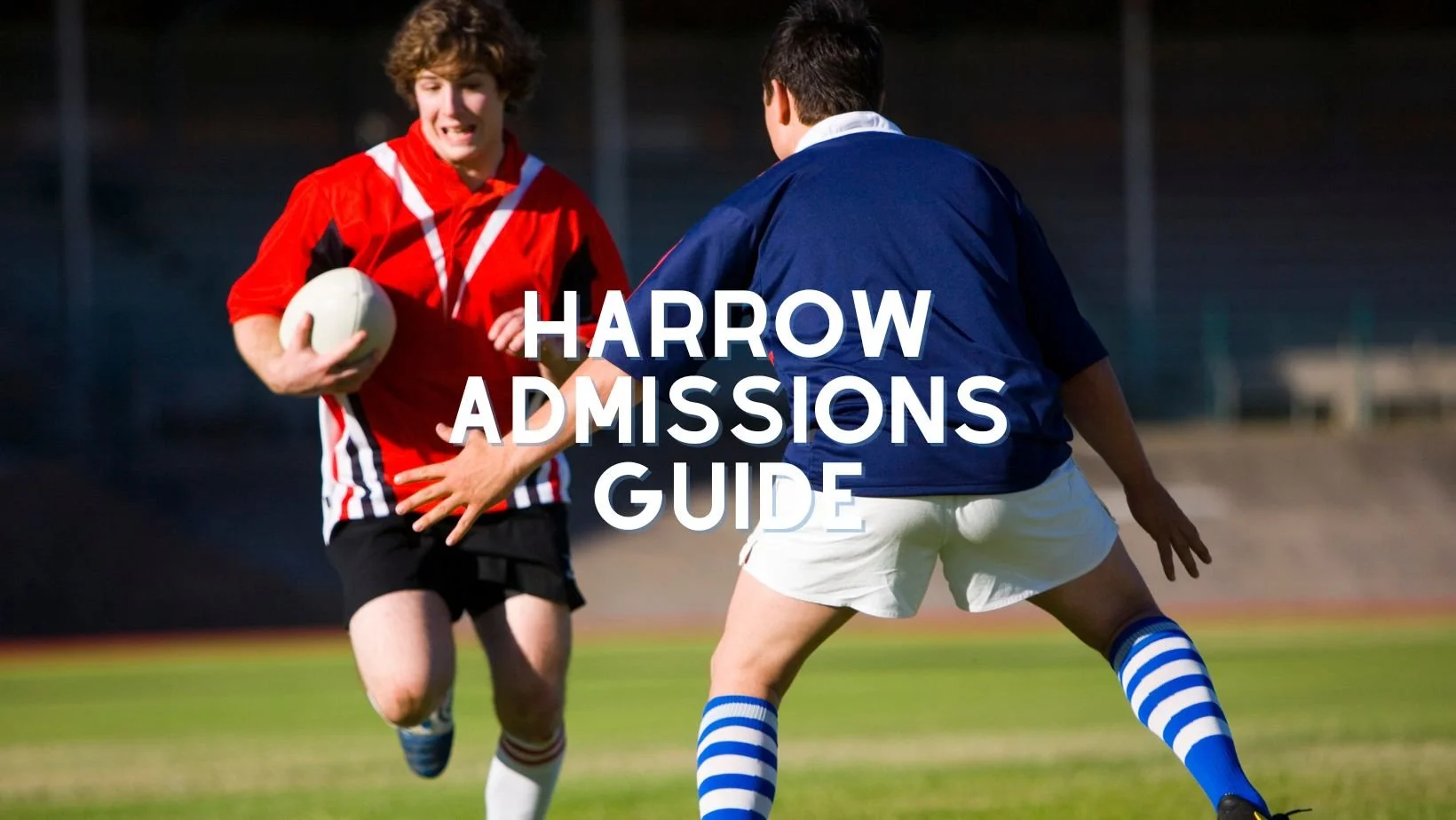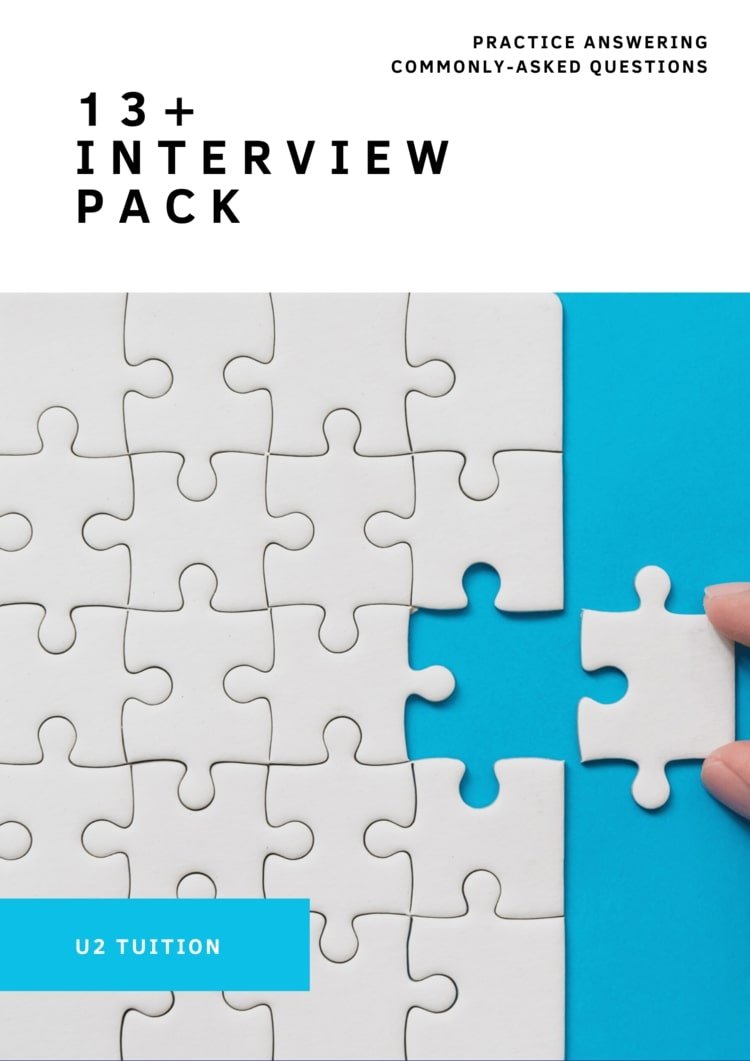Comprehensive Guide to Harrow Admissions: 13+ Exam and Interview Tips
Harrow Admissions: The School
Harrow is a historic boys boarding school on a 324 acre estate accessible on the tube from central London. The school generally has 840 boys who are full boarders in its 12 prestigious houses. Founded by Royal Charter under Elizabeth I in 1572, Harrow places a strong emphasis on its traditions, whether that be students tipping hats in greeting, singing Victorian and Edwardian songs, or playing their own version of football. It has produced notable alumni from Prime Ministers Winston Churchill and Robert Peel, to contemporary cultural icons like actor Benedict Cumberbatch and singer James Blunt.
Central to the Harrow admissions process is the question of whether your child is the right fit for the school. In order to secure a highly competitive place at Harrow, students need to strongly embody the school values and demonstrate their ability (and desire) to positively contribute to the school community and beyond. Harrow students are defined by the school as “talented boys who love learning and have the potential to make a real difference”. While academic excellence is crucial, talent and interest in other extracurriculars which demonstrate the student’s excitement to take advantage of the breadth of opportunities Harrow has to offer are also key elements of the Harrow admissions and selection process.
This Harrow admissions guide is designed to break down the competitive process and provide tips for the Harrow entrance exam to boost your child’s performance. We also unpack the Harrow interview and highlight the ways your son can demonstrate key characteristics and values that will help him stand out to the school as an ideal future Harrovian.
Harrow Admissions Timeline: 13+
In Year 9, around 160 boys join the school. Places are highly competitive and the Harrow admissions process begins as early as the end of Year 5 when students must complete their registration.
Here’s a full breakdown of the key stages of Harrow admissions:
Attend an open day: Students are recommended to attend an open day to visit the school in year 4 or 5. On these open days, parents and applicants can hear a talk from the headmaster, tour the school, speak to students and visit one of the boarding houses.
Registration: Students must register by the end of year 5.
References requested: Harrow will request references from the student’s current school in the autumn term of year 6. A strong reference is important as Harrow places an emphasis on good behaviour and a desire to contribute to school life.
U2 Tuition Tip: Make sure your son has taken active steps to get involved in school life before Year 6. This will give their school lots of positive points to mention in the reference as evidence of his eagerness to get involved and make a positive difference, as well as useful discussion points at interview.
ISEB pre-test: All applicants must sit the ISEB pre-test in the autumn term of year 6. This is normally sat online from their current school.
See our full guide to unlocking success in the ISEB pre-test.
The Harrow Test: If successful in the ISEB pre-test, students will be invited to sit the Harrow test in the spring term of year 6. The Harrow test is sat at Harrow school and consists of:
a computerised English, Maths, non-verbal reasoning assessment (1 hour)
a classroom based group activity (20 minutes)
an interview with a House Master (20 minutes)
See our full breakdown of the Harrow test below
Offers sent out: In April/Early May of Year 6, offers will be sent out to successful candidates. These offers could be attached to a house, or without a house selected yet, or a waitlist place.
Note that these offers are subject to a successful result in the Common Entrance or Harrow academic scholarship exams sat in Year 8
Harrow Academic Scholarship Exam: Students applying for an academic scholarship will sit the first round of examinations in January of Year 8 at his own school, and then the second round at Harrow in February. A strong performance in the academic scholarship examinations means the student shouldn’t have to sit common entrance.
Common Entrance Exam: If not applying for a scholarship, all successful applicants must sit the Common Entrance exam. The subjects they must sit varies according to their current education:
Students at schools that prepare students for CE must take papers in Mathematics, English, Science, French, Latin, History, Geography and perhaps Theology, Philosophy and Religion.
If looking for a place in a top maths set, they should take an additional maths paper.
An applicant at a school which teaches some but not all of the CE subjects will take Mathematics (Core), English (Core) and Science (Core) papers as a minimum.
There is no pass mark for Common Entrance but Harrow expects successful applicants to achieve at least 65% in all papers and notes that many of the applicants score over 70%.
U2 Tuition Tip: Harrow encourages students to stretch themselves in the common entrance exam and the school weights results in order to reward students who choose to attempt the harder papers.
Looking for support with Harrow 13+ admissions?
Working with a 13+ tutor alleviates the stress of the Harrow admissions journey by offering expert support every step of the way.
Our tutors ensure that your child is fully prepared for all elements of the Harrow admissions process, including the ISEB pre-test and the Harrow test, developing a focused plan that strengthens subject knowledge and hones exam technique. Beyond academics, tutors provide tailored interview strategies and mock practice to boost confidence and refine communication skills.
With U2 Tuition’s Harrow admissions experts, you can feel confident that your child is receiving individualised support tailored to their needs to ensure they excel in exams and interviews.
Find out more about the 13+ tutoring services we offer here.
Harrow Entrance Exam Guidance and Tips
After students have sat the ISEB pre-test (which we have dedicated a whole separate guide to!), the next step for successful applicants is attending the school itself for the Harrow Test. The Harrow test consists of a computerised exam component, a group classroom assessment, as as well as two interviews: one with one of Harrow’s house masters and one with a teacher.
The Harrow Test assesses students on English, Maths and Non-Verbal reasoning, all within a one hour limit. The online test is adaptive, meaning questions get harder in line with the student’s performance (like the ISEB).
For Mathematics, students will be tested on mental arithmetic and problem solving. The English section focuses on vocabulary, grammar and comprehension.
Even though there aren’t Harrow entrance exam past papers available, students should familiarise themselves with the types of questions asked. They should get confident with 11+ English, Maths and non-verbal reasoning questions, using books like Bond or GL. Once your child is confident with 11+ material, you can stretch and challenge them with some easier 13+ questions in these subjects which will help prepare them for the hardest level of adaptive questions they may encounter. A Harrow entrance exam tutor can support your child throughout their preparation for the Harrow test and come up with a preparation plan to ensure they cover all content and question types in time for the Harrow test.
U2 Tuition Tip: Make sure your child is used to working in strict time conditions and adapts the right exam technique to efficiently answer questions without sacrificing accuracy. They should also find ways to get used to the online format, whether that be through ISEB practice tests online or using online learning software.
Harrow Interview
The Harrow interview is a key stage of the Harrow admissions process. The school places a strong emphasis on the importance of character and sharing the school’s values and the interviews which take place on the Harrow test day are the candidate’s first opportunity to demonstrate this. As part of the Harrow test, students have three interviews:
The House Master Interview
Member of staff Interview
Group activity
The House Master interview is really looking to assess whether the student’s values align with the school. Students need to demonstrate their excitement and eagerness to get involved in the Harrow community as well as a genuine interest in learning. It’s important students come across as confident at this point and that they transmit a genuine enthusiasm for the school. They should think about what excited them about the school on the open day and research the school’s history, values and facilities. Their answers cannot feel overly rehearsed.
Working with a tutor to support your child’s preparation for the Harrow interview can help him understand and embody the school’s values, as well as learning key interview techniques that ensure he stands out.
In the interview with a member of the teaching staff, Harrow are looking for the student’s academic aptitude and their enthusiasm for learning. Students should look to show curiosity and ensure they have engaged with the subjects that excite them beyond the classroom, whether that’s through reading or taking part in co-curricular clubs. Our co-curricular division Minds Underground runs a treasure trove of clubs that young students can get involved in. You could try our STEM club to learn more about scientific research, or our young debate club to boost confidence and knowledge of current affairs. Take a look at the full range of clubs available to enhance your son’s Harrow interview performance.
The group interview is really looking to see whether your son can work well as a team and collaborate effectively. This is a fine balance between being eager to contribute and engage, and taking time to listen to others. Remind your child that this part of the interview is not about scoring marks for having lots to say but about being able to collaborate in a group.
The group discussion is often in response to a stimulus, which could be a picture, object or theme.
U2 Tuition Tip: Find ways to incorporate these group discussions into family. You could pick an interesting postcard or an intriguing object to generate discussion. Make sure your son is able to actively listen to other family members as well as respectfully contribute their own creative ideas.
Ultimately, across the different components of the Harrow interview, the school is trying to assess whether the candidate is going to be an active member of the school community and positively contribute through academics and extracurriculars. They are looking for boys who are confident and yet respectful with a great appetite for learning and equally able to get stuck in beyond the classroom in sport, music, drama or art. Successful candidates at the Harrow interview will embody the school’s values and come across as a natural fit for the intensive boarding environment, as well as keen to embrace all the incredible opportunities the school has to offer.
Working with a tutor to prepare for the Harrow interview is a great strategy to build your child’s confidence and allowing them to naturally radiate the school’s ethos and core values in their interview responses. All our tutors are highly experienced in all elements of the Harrow admissions process and keen to take some of the stress out of preparing for the Harrow interview. Find out more about how we can help support you in your Harrow admissions journey, here.
U2 Tuition has also curated an in-depth 13+ interview guide and a bank of 13+ questions which can give you greater insight into the kinds of questions that might be asked in the Harrow interview, as well as further opportunities to practise.
A note on Extracurriculars for Harrow Admissions
Harrow places a strong emphasis on its students not only being academically skilled but also being well-rounded individuals with talent and interest in extracurriculars. The school notes that boys who are skilled in sport, music, art or drama will have an advantage over other characters. If your son is dreaming of a place at Harrow, it’s really important he also gets involved in extracurriculars from a young age and builds key skills to excel in these. Harrow has a great range of extracurricular activities on offer and top of the range facilities for them; it wants students who will take advantage of these and contribute positively to school life and the school community beyond just academics.
Harrow Scholarships
Harrow scholarships are normally awarded in year 8. Students applying for a scholarship will take the competitive scholarship assessment, instead of common entrance if they succeed. If offered the scholarship, students will have 5% deducted from Harrow fees. If awarded an honorary scholarship once in attendance at the school, there will not be a reduction in Harrow fees.
Students who require a bursary to attend Harrow can state this at the start of the application process. All bursaries are means tested and can range from a 5% to 100% reduction in Harrow fees. Note that these bursaries are highly competitive and require students to have both an excellent academic performance and to excel in extracurriculars.
Looking for a Harrow Tutor to support your Harrow Admissions Journey?
A dedicated tutor can be a great help for students preparing for the Harrow Entrance Exam. Through a tailored study plan targeting essential content for the Harrow test and honing exam technique to boost performance, your child will receive comprehensive, focused preparation designed specifically for success in the Harrow admissions process.
U2’s team of Harrow Admissions tutors comprises Oxbridge graduates, many of whom attended Harrow themselves. They can help students emulate the school’s values to allow them to stand out. Our tutors work to build your child’s confidence, ensuring they are thoroughly prepared and equipped with effective exam and interview techniques.
At U2 Tuition, we start with a consultation to discuss your child’s goals and any areas for development. This allows us to match them with a tutor who specialises in Harrow Admissions. Beginning your tuition journey early ensures ample time to support each stage of the application, including the ISEB pre-test sat in Year 6, but you may also prefer more intensive sessions in the build up to the Harrow test day. Our tutoring is designed to be flexible to meet your needs, with options for both online and in-person sessions.
Book a free initial consultation now to find out more about how our tutors can support you and your child through the Harrow admissions process.






